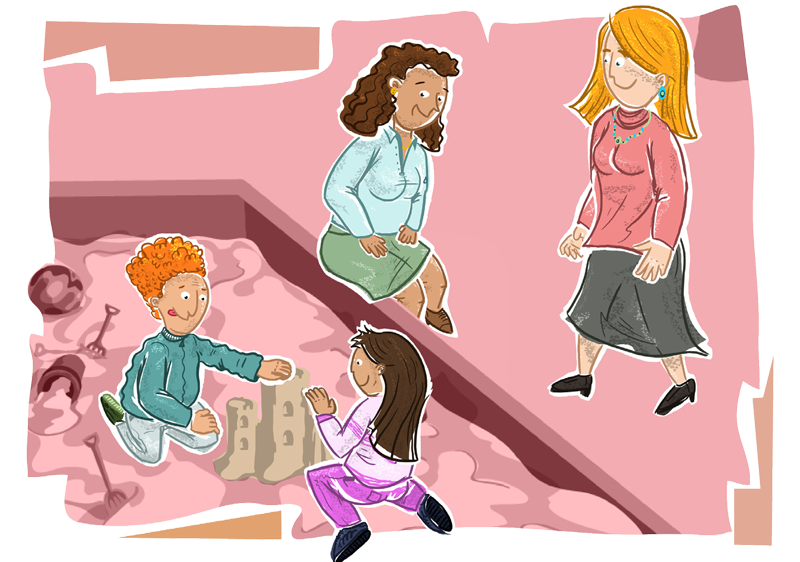What can I do before an outbreak of violence? SR
Living Democracy » Parents » ДЕЦА (4 – 12 године) » АГРЕСИВНО ПОНАШАЊЕ » What can I do before an outbreak of violence? SR
What can I do before an outbreak of violence? – Preventive pedagogical behavior
What can you do, fundamentally, so that your child does not ever resort to violence? First, it should be borne in mind that aggression is an innate behavior, a reaction which occurs in certain situations, as all human beings know themselves. Thus, it is quite normal to develop aggressive feelings resulting from border transgressions. For further information click here.
Therefore, it is not a matter of prohibiting aggressive feelings, but rather of question of finding proper ways to deal with them, and to pass these on to the children.
- My function as a role model:
Children learn a great deal by imitation. As parents, you always fulfill a role model function for your children. They see how your behavior patterns may lead to a greater or lesser degree of success in certain situations. Accordingly, the children will want to try out the observed behaviors. Thus, as a first step, you must consider and assess your own behaviors. Consider the following reflection questions:- How do we treat each other within the family in everyday life?
- How do we treat each other as (marriage) partners?
- How do we deal with our children? Do we use destructive messages?
- How do I deal with border transgressions as an adult?
- Where is my individual threshold for getting angry, until I exhibit aggressive behavior?
- Vigilant care
The vigilant care concept describes the caring awareness with which the parents treat and look out for their children and their children’s lives. Responsible parents and strong parent-child relationships are essential for a successful educational process. Remain in contact with your children, thus showing them: I love you and you are important to me. You are responsible for the lives of your children; therefore, it is your parental duty to take an interest in your children and their lives. If you are afraid that your children may become aggressive in playing, you must accompany them very closely: Play actively along with them or climb on the slide yourselves (when visiting a playground). This way, you are in position to immediately clear up and explain a situation which your children might perceive as a border transgression. Thus, your children learn to correctly assess a situation and to deal with aggressive thoughts.
If you participate actively in the lives of your children, you are informed about their interests and aware of their feelings and needs. If something should not turn out exactly as your children had hoped, you have an opportunity to search for alternative solutions and possibilities for action together. If the situation spirals out of control, you as parents are not caught by surprise, and thus able to intervene in a timely manner to protect your children.
For more information click here. - Avoiding escalations
When it comes to turning off the TV or cutting off the non-stop use of smartphones, one word may lead to another, as you have surely experienced already. Suddenly, you find yourselves embroiled in the middle of a spiral of escalation which, in the worst case, may end in physical violence. Therefore, it is worth making the effort to avoid an escalation. Here are a few suggestions:- Do not react instantly to a provocation. Instead, try to engage in a dialog later.
- You may not be able to control the behavior of your children, but surely you can control your own. For once, try to break through this spiral of escalation with silence!
- It is not a question of winning in a discussion with your children. However, you must make it clear to them what kinds of behavior you will not condone (in this case violent behavior) and that you will oppose it.
One possible form of resistance is the so-called sit-in. You go into the room of your children for a previously determined time and declare that you are now silently awaiting their proposal about how they would like to modify their exhibited behavior.

